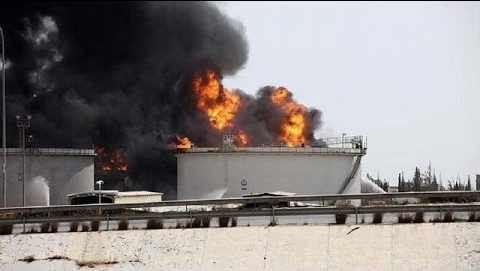
Nigeria’s crude oil production is expected to remain depressed through 2017 as a result of militant attacks, the Energy International Administration (EIA), the statistical arm of the United States’ Energy Department, has said.
The EIA, in a statement on its website, said the crude oil production disruptions in Nigeria reached 750,000 barrels per day in May 2016, the highest level since January 2009.
It said the increased disruptions came as militants continued to focus attacks on oil and natural gas infrastructure in the country.
The agency noted that Nigeria, a member of the Organisation of the Petroleum Exporting Countries (OPEC), was Africa’s largest oil producer until Angola’s oil production surpassed it earlier this year.
Nigeria’s crude oil production disruptions had been concentrated in the Niger Delta region, an oil-rich area bordering the Gulf of Guinea that is the mainstay of the country’s crude oil production, the EIA noted.
It said since the beginning of 2016, the Niger Delta Avengers had conducted many attacks on oil and natural gas infrastructure throughout the region.
The EIA said, “Although not the only militant group conducting attacks in the region, the NDA is currently the most active.
“The NDA’s attacks have resulted in immediate and severe disruptions in crude oil production, as some of the attacks have targeted key oil-gathering and export infrastructure. Nigeria’s oil production averaged 1.9 million bpd in 2015. By May 2016, Nigerian oil production had fallen to 1.4 million bpd, nearly a 30-year low.”
The agency noted that after some repairs, and in the absence of major new attacks, some of the disrupted production was restored, and crude oil output averaged 1.6 million bpd in June.
It said, “Despite this recent increase, the continued threat of militant attacks poses a risk to sustained production. The NDA has claimed responsibility for several attacks since the beginning of July, and outages once again rose in July.”
According to trade press reports, exports of multiple Nigerian crude oil grades, including Bonny Light, Forcados, Brass River, and Qua Iboe, have been under periods of force majeure since the beginning of 2016, meaning companies are released from export obligations as a result of circumstances beyond their control.
The EIA said, “Significant disruptions in oil production resulting from the NDA attacks, combined with relatively low crude oil prices, have had a significant effect on Nigeria’s economy. According to Nigeria’s Ministry of Budget and National Planning, Nigeria’s oil sector provides 70 per cent of government revenue and 95 per cent of export revenue.
“The NDA attacks are largely in response to President Muhammadu Buhari’s cutback on amnesty payments and termination of security contracts to former militants. The group threatens to continue the attacks until the Nigerian government meets its demands, some of which include greater regional control of local oil production, continuation of the amnesty programme, and compensation to Niger Deltan communities polluted by oil exploration and production.”
It noted that the Nigerian government announced in June that it had agreed to a ceasefire with the NDA, but the group refuted that statement and had conducted numerous attacks since then.
